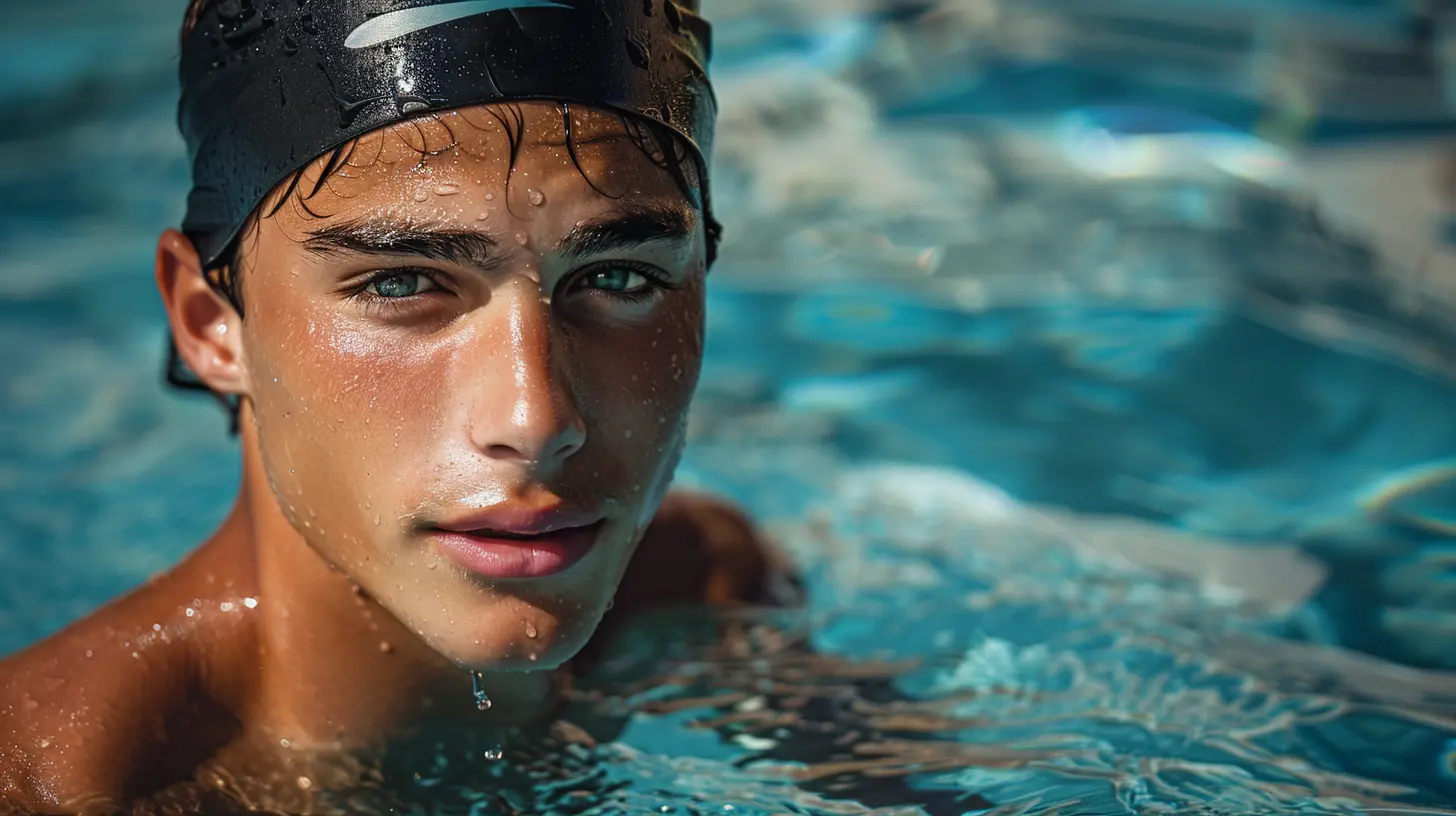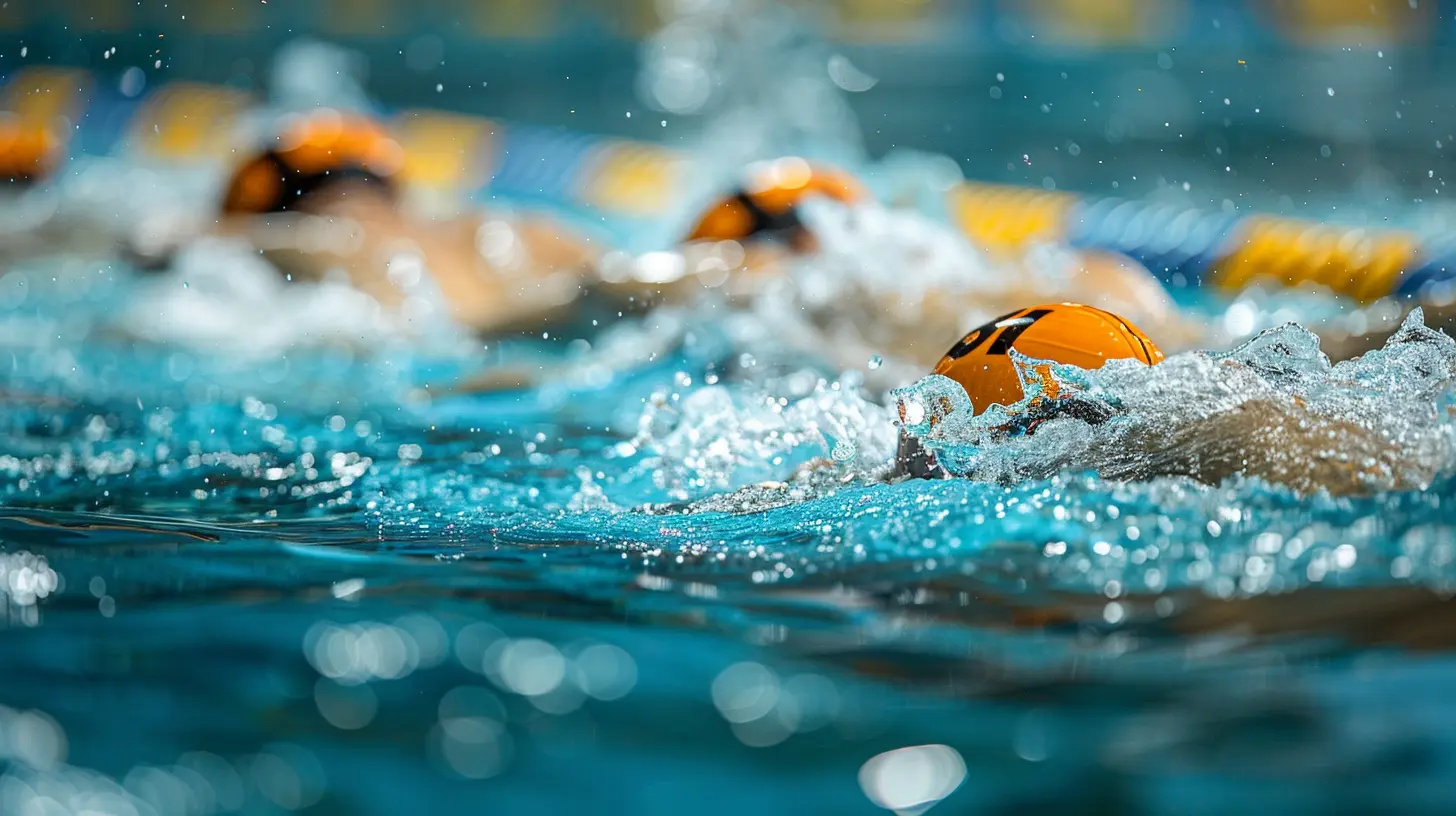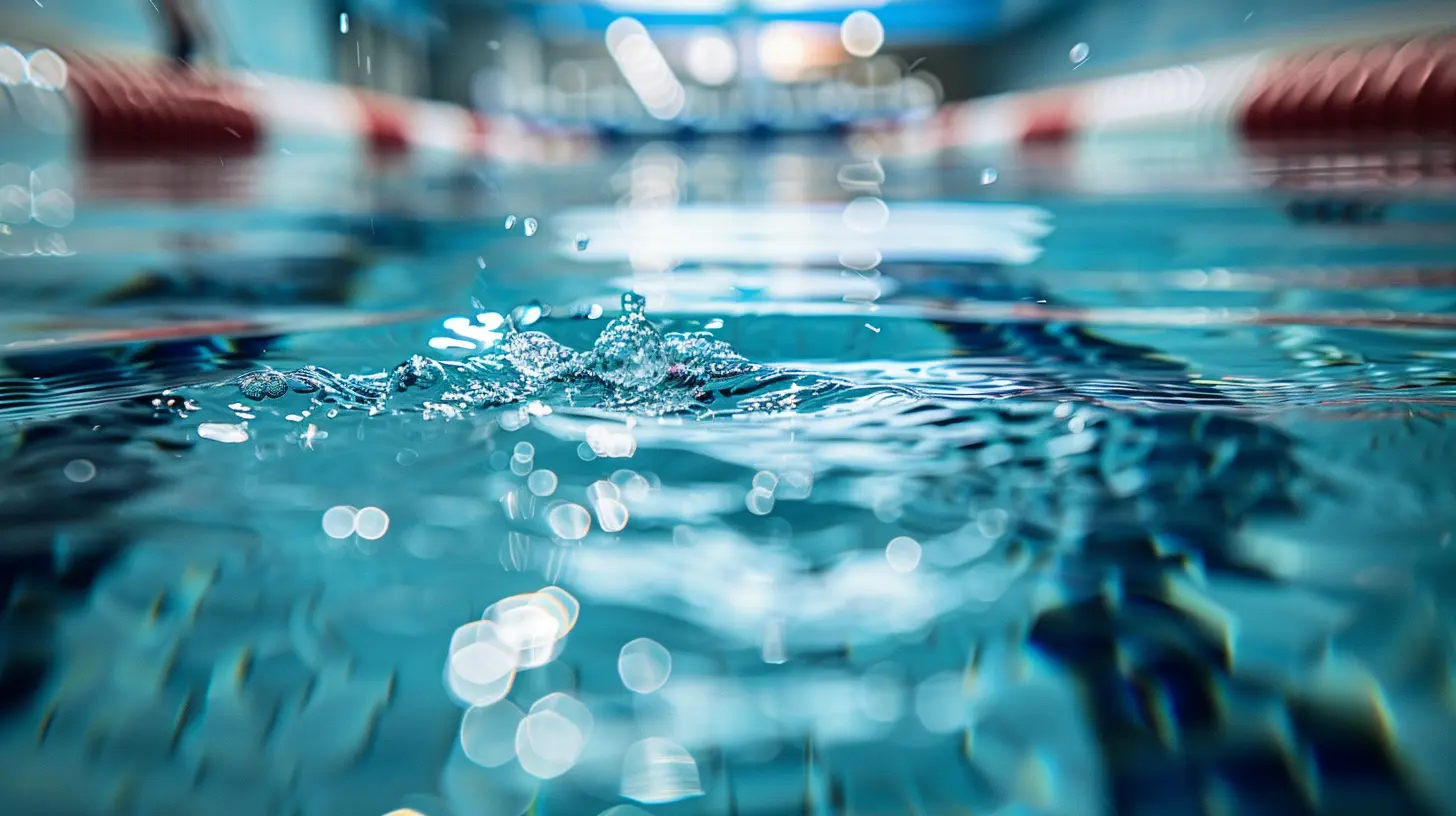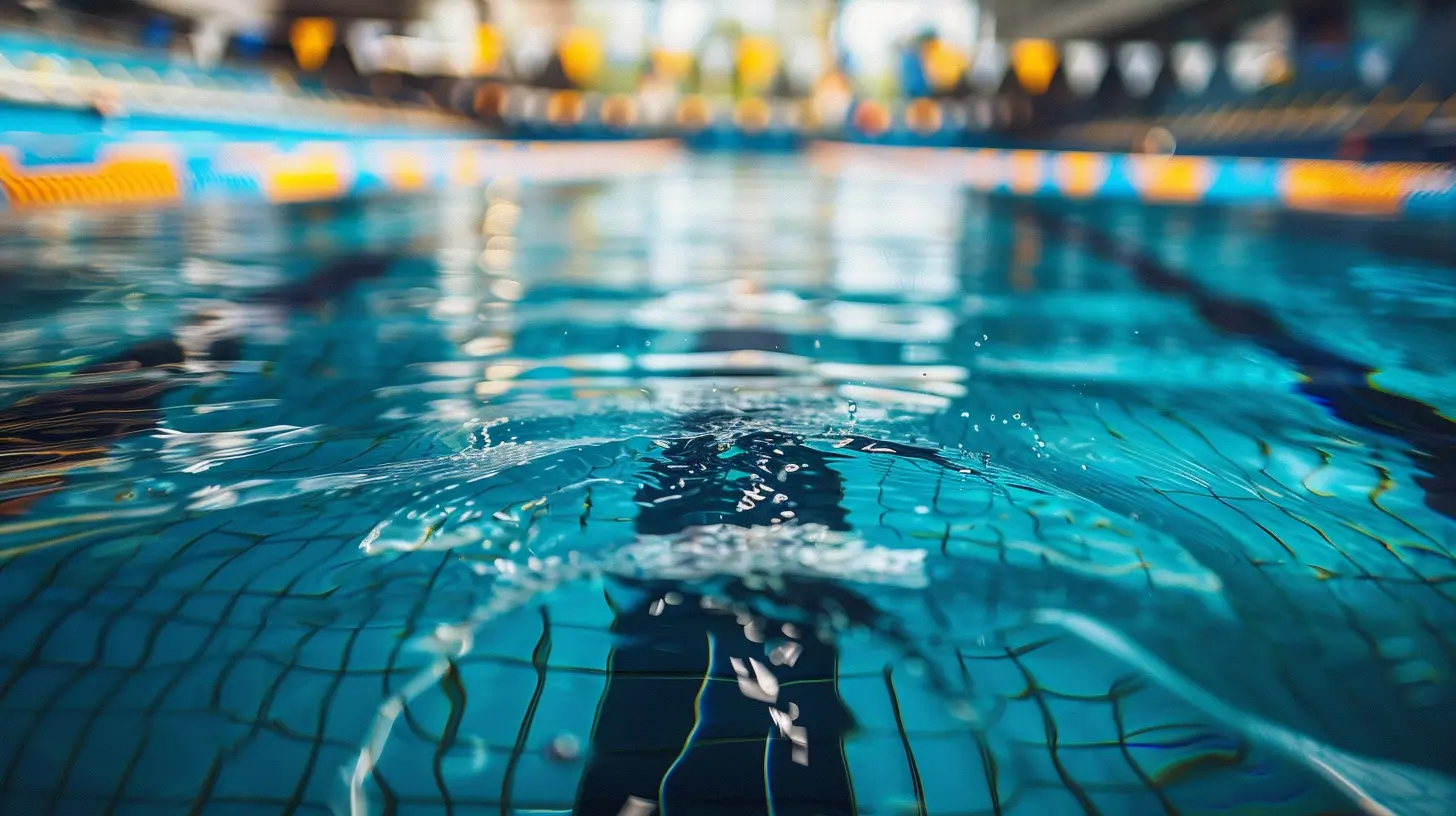Why Core Strength is Crucial for Swimmers
3 January 2025
When you think of swimming, what's the first thing that comes to mind? Speed? Technique? Maybe endurance? While all of these are undeniably important, there's one thing that often gets overlooked: core strength. Yep, that's right—the muscles that make up your midsection play a huge role in your swimming performance. Whether you're a seasoned swimmer or just learning the ropes, developing a strong core can be the game-changer you didn’t know you needed.
So, why exactly is core strength so crucial for swimmers? Let’s dive into the deep end and explore how building a solid core can help you glide through the water with more power, precision, and efficiency.

What Exactly Is "Core Strength"?
Before we go any further, let’s get on the same page about what "core strength" actually means. Your core isn't just your abs—it's a group of muscles that include your lower back, hips, and pelvis. Think of it as the body’s powerhouse, responsible for stabilizing your spine and allowing for balance and movement. Essentially, your core connects your upper and lower body, acting as the bridge that lets the two work together smoothly.Imagine trying to shoot a cannon from a canoe. Without a stable base (your core), it'd be nearly impossible to generate enough power for that cannonball to go anywhere. That’s exactly what happens in the water if your core muscles are weak—your legs and arms will work hard, but without that solid foundation, you won’t get the full benefit.

Why Do Swimmers Need Core Strength?
Swimming is a full-body workout, no question about it. But unlike many other sports, swimming takes place in water, where you have to constantly fight against drag and resistance. This is where core strength comes into play.A strong core helps swimmers maintain proper body position in the water, which is key to reducing drag and increasing speed. When your core is weak, you’re more likely to sink or let your body twist unnaturally, making it harder to move efficiently through the water. On the flip side, a strong core stabilizes your body, allowing you to move smoothly and remain streamlined.

Core Strength = Better Body Positioning
One of the most important aspects of swimming is maintaining a streamlined position. Whether you’re doing freestyle, backstroke, or even butterfly, keeping your body aligned is crucial for cutting through the water without wasting energy.Think of it this way: in swimming, you're trying to make yourself as hydrodynamic as possible. The more streamlined you are, the less water resistance you’ll face. A strong core helps keep your body stretched out like a straight arrow, reducing drag and allowing you to swim faster with less effort. Weak core muscles, on the other hand, can cause your hips to drop, making you more like a "sinking ship" than a sleek vessel.

Core Strength Enhances Rotation
Rotation is a fundamental part of many swimming strokes, especially freestyle and backstroke. When done correctly, rotation allows swimmers to generate more power with each stroke while keeping their movements fluid and efficient. But here’s the kicker—rotation comes primarily from your core.Without a strong core, your rotation will be off, which means your arms and legs will have to work overtime to try and compensate. This not only wastes energy but can also mess with your technique. A solid core lets you rotate with ease, helping you maximize your propulsion and keep your movements smooth and rhythmic.
Prevents Injury
Swimming might be considered a low-impact sport, but that doesn’t mean it’s injury-proof. In fact, swimmers are prone to certain injuries, like shoulder problems (often called swimmer's shoulder) and lower back pain.Guess what helps keep those injuries at bay? You got it—core strength.
A strong core provides better support to your body, especially your lower back, which can take a lot of strain during swimming. It also helps distribute the workload more evenly between your muscles, taking some of the pressure off your joints and making you less likely to overuse specific areas like your shoulders. Essentially, a well-trained core acts as your personal bodyguard, keeping you swimming injury-free.
Core Strength Improves Breathing
You might not associate core strength with breathing, but the two are more connected than you think. Swimming, especially during intense workouts or competitions, requires controlled breathing. The stronger your core, the easier it is to maintain good posture and technique while breathing.When your core is engaged, you’re able to keep your body stable, which makes it easier to take those crucial breaths at the right times without losing your rhythm or form. Plus, a strong core helps you exhale more fully, so you're not holding onto stale air, which can make a big difference in your overall oxygen uptake and endurance.
Boosts Speed and Power
Let’s be real for a second—every swimmer wants to be faster. That’s the ultimate goal, right? And while technique and endurance are key components of speed, core strength is often the hidden engine behind it all.Here’s why: a strong core allows your muscles to fire more effectively. When your core is stable, your limbs can generate more force because they have a solid base to work from. Whether you’re pushing off the wall during a turn or powering through the last lap of a race, a strong core gives you that extra boost of speed and power. Think of it as the turbocharger in your swim game.
Enhances Kick Efficiency
Let’s not forget about your legs. Kicking is a major part of swimming, and guess what? Your core plays a big role here too. Whether you’re flutter kicking, dolphin kicking, or using a breaststroke kick, your core muscles are what help you maintain proper form and generate power.Without a strong core, your kicks can become sloppy and inefficient, making it harder to generate propulsion. But with a well-developed core, your kicks will be more controlled, powerful, and effective. It’s like turning your legs into finely-tuned pistons, propelling you forward with each kick.
Core Strength for Swimmers of All Levels
At this point, you might be thinking, "Okay, I get it. Core strength is important, but does it really apply to me?" The short answer: yes. Whether you're a beginner just learning how to swim or a seasoned competitor aiming for that next personal best, core strength is crucial.For beginners, developing core strength helps you build a solid foundation for learning proper technique. Without it, you’ll struggle to maintain good body position, which can slow your progress and make swimming feel more difficult than it needs to be.
For more advanced swimmers, focusing on core strength can help you fine-tune your performance. It’s often the missing link that takes swimmers from being "good" to "great." In a sport where fractions of a second can make all the difference, strengthening your core can be the edge you need to outpace the competition.
How to Build Core Strength for Swimming
Now that you know why core strength is so important, you’re probably wondering how to actually build it. The good news is, you don’t need any fancy equipment or a gym membership to get started. There are plenty of exercises you can do right at home or at the pool.Here are some swimmer-friendly core exercises to incorporate into your routine:
- Planks: A classic exercise for building core strength. Try standard planks, side planks, and even planks with arm or leg lifts to challenge your stability.
- Russian Twists: This exercise is great for building rotational strength, which is key for improving your stroke technique.
- Leg Raises: Lie flat on your back and lift your legs to work your lower abdominal muscles. You can modify this by doing flutter kicks to mimic the swimming motion.
- Supermans: Strengthen your lower back by lying face down and lifting your arms and legs off the ground as if you’re flying like Superman.
- Bird Dogs: Get on all fours and extend your opposite arm and leg, working on balance and core stability.
- Medicine Ball Slams: If you have access to a medicine ball, this dynamic movement is excellent for building explosive core strength.
Whatever exercises you choose, consistency is key. Aim to work on your core at least 3-4 times a week for the best results. And remember, core strength isn’t just about your abs—it’s about building a stable, balanced foundation that helps you swim faster, longer, and more efficiently.
Wrapping It Up
In the world of swimming, there's no denying the importance of a strong core. Whether you’re looking to improve your speed, prevent injuries, or simply swim with better form, your core is the driving force behind it all. Building core strength isn’t just for athletes or pros—it’s for swimmers of all levels who want to get the most out of their time in the water.So the next time you hit the pool, don’t just focus on your arms and legs. Engage your core, and watch how your swimming transforms. You’ll be slicing through the water like a torpedo in no time!
all images in this post were generated using AI tools
Category:
SwimmingAuthor:

Everett Davis
Discussion
rate this article
17 comments
Bennett McQuillen
Great insights on the importance of core strength for swimmers! It’s fascinating how a strong core enhances performance and stability in the water. Thanks for sharing these valuable tips and information!
April 8, 2025 at 10:53 AM

Everett Davis
Thank you for your kind words! I'm glad you found the insights valuable. A strong core truly makes a significant difference for swimmers!
Echo Coleman
Core strength enhances stability, improves stroke technique, and boosts overall performance, making it essential for competitive swimmers.
March 28, 2025 at 9:22 PM

Everett Davis
Thank you for highlighting the importance of core strength! It truly is foundational for enhancing stability and performance in competitive swimming.
Lila Fields
Core strength boosts performance and prevents injuries!
February 6, 2025 at 5:55 AM

Everett Davis
Absolutely! A strong core enhances stability, improves efficiency in strokes, and reduces the risk of injuries, making it vital for swimmers.
Nyxaris Scott
This article piqued my curiosity! How exactly does core strength impact stroke efficiency and endurance in swimmers? I’d love to learn more!
January 30, 2025 at 5:39 AM

Everett Davis
Thank you for your interest! Core strength enhances stroke efficiency by providing stability and power transfer, allowing swimmers to maintain better body alignment and reduce drag. This stability also supports endurance, helping swimmers sustain their performance over longer distances. I appreciate your curiosity and encourage you to explore more on this topic!
Olivia Clark
Core strength is essential for swimmers, as it enhances stability, improves stroke efficiency, and prevents injuries. A strong core facilitates better body position and rotation, allowing for more powerful and streamlined movements in the water, ultimately leading to improved performance.
January 25, 2025 at 1:26 PM

Everett Davis
Thank you for highlighting the importance of core strength in swimming! It's indeed vital for enhancing performance and preventing injuries.
Zarenith Richardson
Core strength is essential for swimmers, enhancing stability and efficiency in the water. A strong core supports better technique and overall performance, leading to improved results.
January 21, 2025 at 12:36 PM

Everett Davis
Absolutely! A strong core is vital for swimmers, as it not only enhances stability and efficiency but also directly contributes to improved technique and performance in the water.
Riven Rhodes
Core strength transforms swimming from mere movement to an artful synergy.
January 16, 2025 at 9:21 PM

Everett Davis
Thank you! Core strength truly enhances not just performance but also the fluidity and elegance of a swimmer's movements.
Genevieve Wells
Strong cores enhance stability and efficiency, improving swim performance and reducing injury risk.
January 11, 2025 at 8:41 PM

Everett Davis
Absolutely! A strong core is essential for swimmers as it not only boosts performance but also helps prevent injuries by providing greater stability and efficiency in the water.
Marissa Black
Core strength is vital for swimmers as it enhances stability, improves technique, and reduces injury risk. A strong core translates to better propulsion and efficiency in the water, ultimately boosting performance.
January 9, 2025 at 4:50 AM

Everett Davis
Thank you for emphasizing the importance of core strength in swimming! It's indeed crucial for enhancing stability and performance while minimizing injury risk.
Jaxon Coffey
Without core strength, swimmers might just be doing belly flops! Float on, folks!
January 8, 2025 at 8:03 PM

Everett Davis
Absolutely! Core strength is essential for proper technique and stability in the water. Thanks for your comment!
Gisela McElveen
Core strength is the foundation of a swimmer's performance! A strong core enhances stability, improves strokes, and boosts endurance. By prioritizing core workouts, swimmers can unlock their full potential, making every lap count! Dive in, strengthen that core, and watch your skills soar! 🏊♂️💪
January 8, 2025 at 12:41 PM

Everett Davis
Absolutely! A strong core is essential for swimmers, as it enhances stability, improves technique, and increases endurance. Prioritizing core workouts can truly elevate performance in the water. 🏊♂️💪
Runevale Gilbert
Core strength is vital for swimmers, as it enhances stability, improves stroke efficiency, and reduces injury risk. A strong core allows for better power transfer, translating into faster, more effective swimming performance.
January 7, 2025 at 11:34 AM

Everett Davis
Thank you for your insightful comment! I completely agree that core strength significantly contributes to stability, efficiency, and injury prevention in swimming. It's essential for optimizing performance.
Hadley McGovern
Core strength is the foundation for a swimmer's stability and power. A strong core enhances balance, streamlines technique, and reduces injury risk, ultimately elevating performance both in and out of the water.
January 7, 2025 at 5:24 AM

Everett Davis
Thank you for your insightful comment! Absolutely, a strong core is essential for optimizing a swimmer's performance and preventing injuries.
Nancy Simmons
Great insights! Core strength truly enhances swimming performance. Thank you!
January 6, 2025 at 3:39 AM

Everett Davis
Thank you for your kind words! I'm glad you found the insights helpful. Happy swimming!
Emmett Kirkpatrick
Core strength enhances stability and swimming efficiency.
January 5, 2025 at 8:40 PM

Everett Davis
Absolutely! A strong core stabilizes the body, allowing swimmers to maintain streamlined positions and improve their overall efficiency in the water.
Gisela Duke
Core strength for swimmers? It's like having a superpower in the water! A strong core helps you glide like a dolphin and flip like a mermaid! So, let’s hit those crunches, shake those abs, and swim our way to victory—one splash at a time!
January 3, 2025 at 9:30 PM

Everett Davis
Absolutely! A strong core enhances stability and efficiency in the water, making every stroke more powerful and fluid. Let's embrace the crunches for a winning swim!
Iris Cole
Great article! Core strength is indeed vital for swimmers, enhancing stability, streamlining body position, and improving overall performance. A strong core supports effective strokes and reduces injury risk. Keep swimming strong!
January 3, 2025 at 4:43 AM

Everett Davis
Thank you for your insights! I'm glad you found the article helpful—core strength truly makes a significant difference in swimming performance and injury prevention. Keep swimming strong!
MORE POSTS

The Cultural Impact of MMA Across Different Countries

How Live Tweets and Real-Time Updates Keep Fans Hooked

Famous Sports Movie Quotes Every Fan Should Know

How to Build a Customized Swim Workout Plan

How Playing Futsal Can Improve Your Outdoor Soccer Skills

The Most Controversial Free Agent Decisions of Recent Times

Why Some College Sports Programs Struggle to Stay Competitive

Can Team A’s Attack Overcome Team B’s Disciplined Defense?

Behind the Scenes: The Life of a College Athlete

How to Incorporate Recovery into Your Cycling Training Plan

How to Prevent Overtraining and Burnout